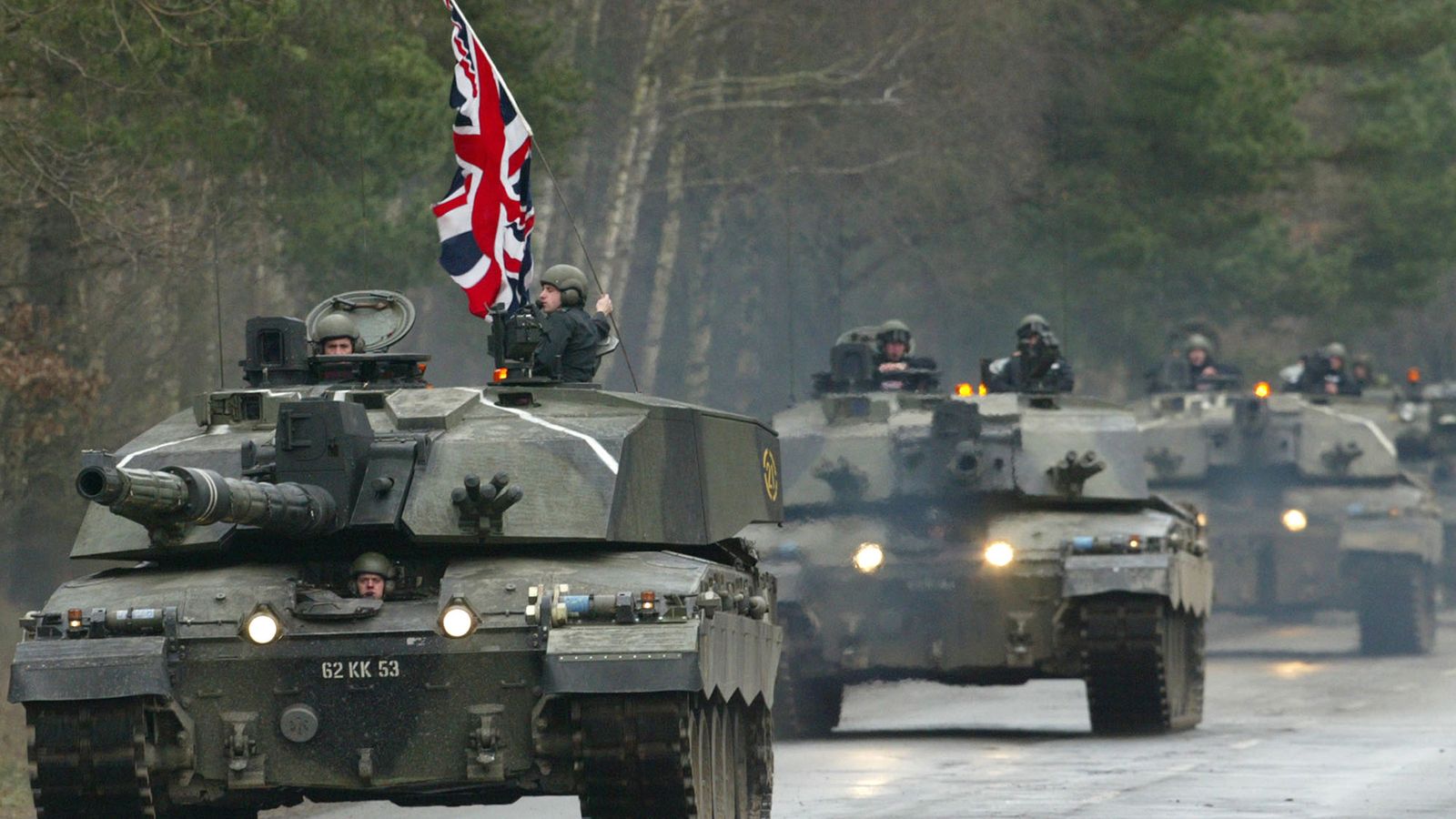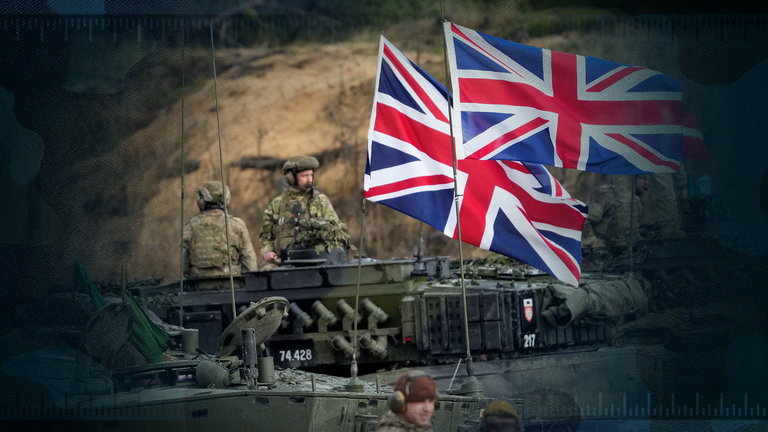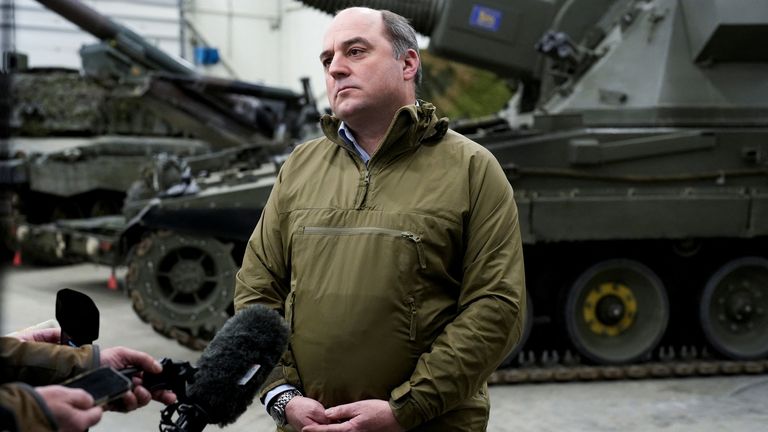The UK’s inability to replenish its dwindling munitions stockpile is putting national security at risk, MPs have warned.
The UK and its NATO allies have allowed reserves of ammunition to fall to “dangerously low levels” while supporting Ukraine in its defence against Russia, according to the Commons Defence Committee.
And it could take at least a decade to rebuild supplies after the war has ended, the committee has warned.
It comes after Sky News revealed last month that the UK is to conduct a review of its ammunition stockpiles, amid fears it no longer has enough munitions to secure its own defences.
A Ministry of Defence (MoD) spokesman said it was continuing to “place orders to replace ammunition given to Ukraine and (we) have an extra £560m to increase stockpiles”.
The Commons Defence Committee has urged the MoD to draw up an action plan to cut the time needed to restore the UK’s munition stockpiles.
“It is clear that the UK and its NATO allies have allowed ammunition stockpiles to dwindle to dangerously low levels,” the committee warned in a report on Tuesday.
“Whilst Russia is also facing the diminution of its stockpiles, other adversaries are able to maintain and potentially increase their own.
“This inability to replenish UK stockpiles therefore puts at risk not just our ability to resupply Ukraine, but also to counter any threat to our own security.”
Read more:
Ukraine war: The race to rearm
RAF to conduct joint NATO air policing missions in Estonia
Armed forces have been ‘hollowed out’
The committee’s warning echoes concerns expressed by Defence Secretary Ben Wallace, who has said that armed forces across Europe have been paying the price for years of “hollowing out”.
Whitehall and defence industry sources also told Sky News last month that Russia’s invasion of Ukraine had exposed how past assumptions on what would be needed to fight a war were far too small.
They urged Rishi Sunak to boost military spending to fund a massive expansion in total munition stores or else risk no longer being able to support the Ukrainian armed forces at the level needed to sustain their war effort, let alone secure Britain’s own defences.
NATO allies urged to step up production
The government’s strategy before Russia’s invasion had been to hold a limited number of warfighting supplies – it costs money to keep in storage things like ammunition and spare parts – and rely on industry to deliver more in a crisis.
However, the sheer volume of equipment needed to sustain a war effort like Ukraine’s has demonstrated that this plan would not work in practice, according to the sources.
Last month, NATO secretary general Jens Stoltenberg urged allies urgently to step up production, as the Ukrainians were burning up munitions faster than the West was able to keep them supplied.
The Commons Defence Committee said it was essential that the UK’s defence industrial capacity was both “resilient and scalable” if it was to be able to ramp up production.
Click to subscribe to Ukraine War Diaries wherever you get your podcasts
“The MoD produced a strategy aimed at improving the way that it engages with industry and allies almost two years ago and yet we have been told it will take at least a decade to replenish (and then increase to a sustainable level) UK ammunition stockpiles,” it said.
“We therefore recommend that the department produce an action plan of how it intends to grow defence industrial capacity and reduce the time taken to replenish UK stockpiles.”
Committee chairman Tobias Ellwood said Russia’s invasion of Ukraine “should be a wake-up call for the West”, while Labour’s shadow defence secretary John Healey accused the government of acting “too slowly” to replenish supplies.
A Ministry of Defence spokesman said: “We remain fully engaged with industry, allies, and partners to ensure both the continuation of supply to Ukraine and replenishment of UK stock as quickly as possible.”


